If you’re planning to take out a loan or apply for a credit card, you’ll want to know what a good credit score is in Singapore. Your credit score is a three-digit number that represents your creditworthiness, and it’s used by lenders to determine whether or not to approve your application. A good credit score can help you secure better interest rates and higher credit limits, while a poor credit score can limit your financial opportunities.
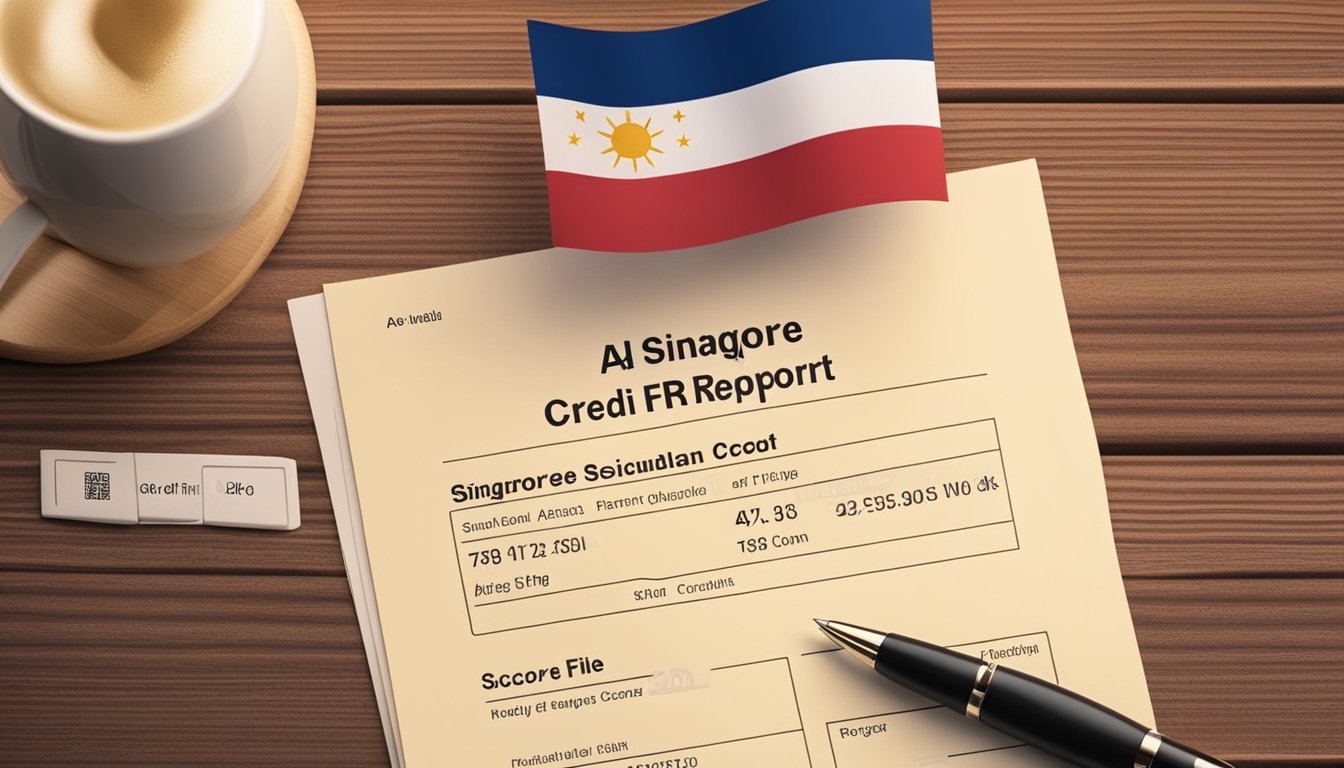
In Singapore, credit scores are calculated by the Credit Bureau of Singapore (CBS) based on factors such as your payment history, the amount of credit you owe, the length of your credit history, the types of credit you use, and your new credit applications. The score ranges from 1000 to 2000, with a higher score indicating lower credit risk. If you have a score of 1911 or above, you’re considered to have an excellent credit score, while a score of 1844 or below is considered poor. Understanding what constitutes a good credit score in Singapore is an important step towards achieving your financial goals.
Key Takeaways
- Your credit score is a three-digit number that represents your creditworthiness and is used by lenders to determine whether or not to approve your application.
- In Singapore, credit scores are calculated by the Credit Bureau of Singapore (CBS) based on factors such as your payment history, the amount of credit you owe, the length of your credit history, the types of credit you use, and your new credit applications.
- A good credit score in Singapore ranges from 1911 to 2000, with higher scores indicating lower credit risk.
Understanding Credit Scores in Singapore

If you’re planning to borrow money from a bank in Singapore, it’s important to understand credit scores. A credit score is a number that represents your creditworthiness and helps lenders assess the risk of lending you money. In Singapore, the Credit Bureau of Singapore (CBS) is the main credit bureau that provides credit scores to lenders.
Components of a Credit Score
Your credit score is calculated based on several factors, including your credit history, the amount of credit you owe, the length of your credit history, the types of credit you have used, and new credit applications. Each of these factors is assigned a weight, and your credit score is calculated based on the total of these weights.
Your credit history is the most important factor in determining your credit score. This includes your payment history, the amount of debt you have, and the age of your credit accounts. Late payments, defaults, and bankruptcies can all have a negative impact on your credit score.
Credit Bureau Singapore’s Role
The Credit Bureau of Singapore (CBS) is responsible for collecting and maintaining credit information on individuals and businesses in Singapore. The CBS provides credit reports to lenders, which include information on an individual’s credit history, including their credit score.
The credit score provided by the CBS ranges from 1000 to 2000, with a higher score indicating lower credit risk. A score of 1911 and above is considered excellent, while a score of 1844 to 1910 is considered good. A score of 1819 to 1843 is fair, and a score of 1818 and below is considered poor.
In conclusion, understanding credit scores is crucial when borrowing money from a bank in Singapore. Your credit score is determined by several factors, with your credit history being the most important. The CBS is responsible for providing credit scores to lenders and maintains credit information on individuals and businesses in Singapore.
Determining a Good Credit Score
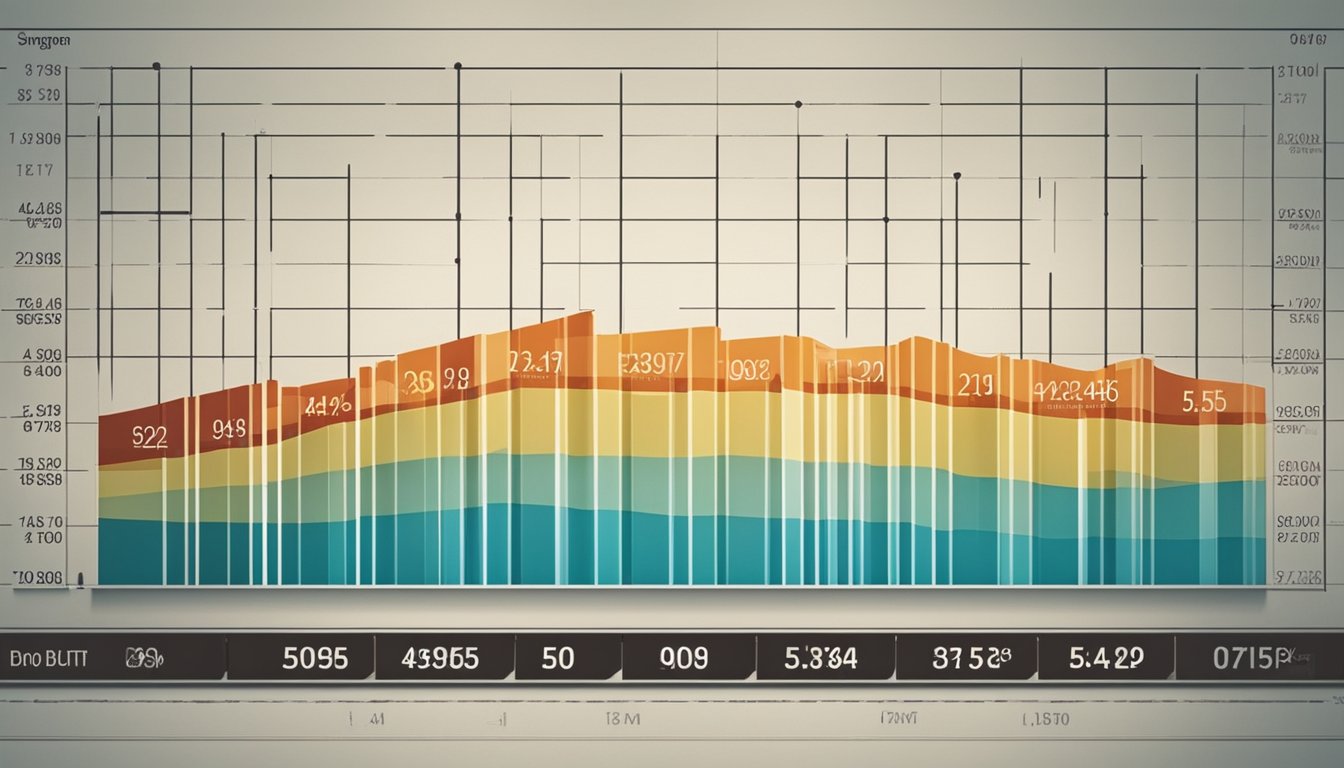
If you’re wondering what constitutes a good credit score in Singapore, you’re not alone. Your credit score is a three-digit number that indicates your creditworthiness to lenders. A good credit score can help you secure loans, credit cards, and other financial products at favourable rates. In this section, we’ll discuss the credit score ranges in Singapore and the factors that influence your credit score.
Credit Score Ranges
In Singapore, credit scores fall within the range of 1,000 to 2,000. The Credit Bureau of Singapore (CBS) calculates credit scores based on several factors such as payment history, the amount of credit owed, the length of credit history, types of credit in use, and new credit applications. A higher score indicates lower credit risk and a lower probability of default. A good credit score on the CBS typically falls between 1,844 and 2,000, while a score below 1,500 is considered poor. On the other hand, an excellent credit score is above 1,950.
Factors Influencing Credit Scores
Your credit score is influenced by various factors. Payment history is one of the most significant factors that affect your credit score. Late payments, missed payments, and defaults can lower your credit score. Your credit utilisation ratio, which is the amount of credit you use compared to the total amount of credit available to you, also affects your credit score. Ideally, you should keep your credit utilisation ratio below 30%.
The length of your credit history also plays a role in determining your credit score. A longer credit history can help you build a good credit score. The types of credit you use, such as credit cards, personal loans, and mortgages, can also affect your credit score. Finally, new credit applications can lower your credit score, so it’s best to avoid making too many credit applications in a short period.
In conclusion, maintaining a good credit score is essential for securing favourable loan and credit card rates. By understanding the credit score ranges and the factors that influence your credit score, you can take steps to improve your credit risk profile and maintain a good credit score.
Impact of Credit Scores on Financial Opportunities
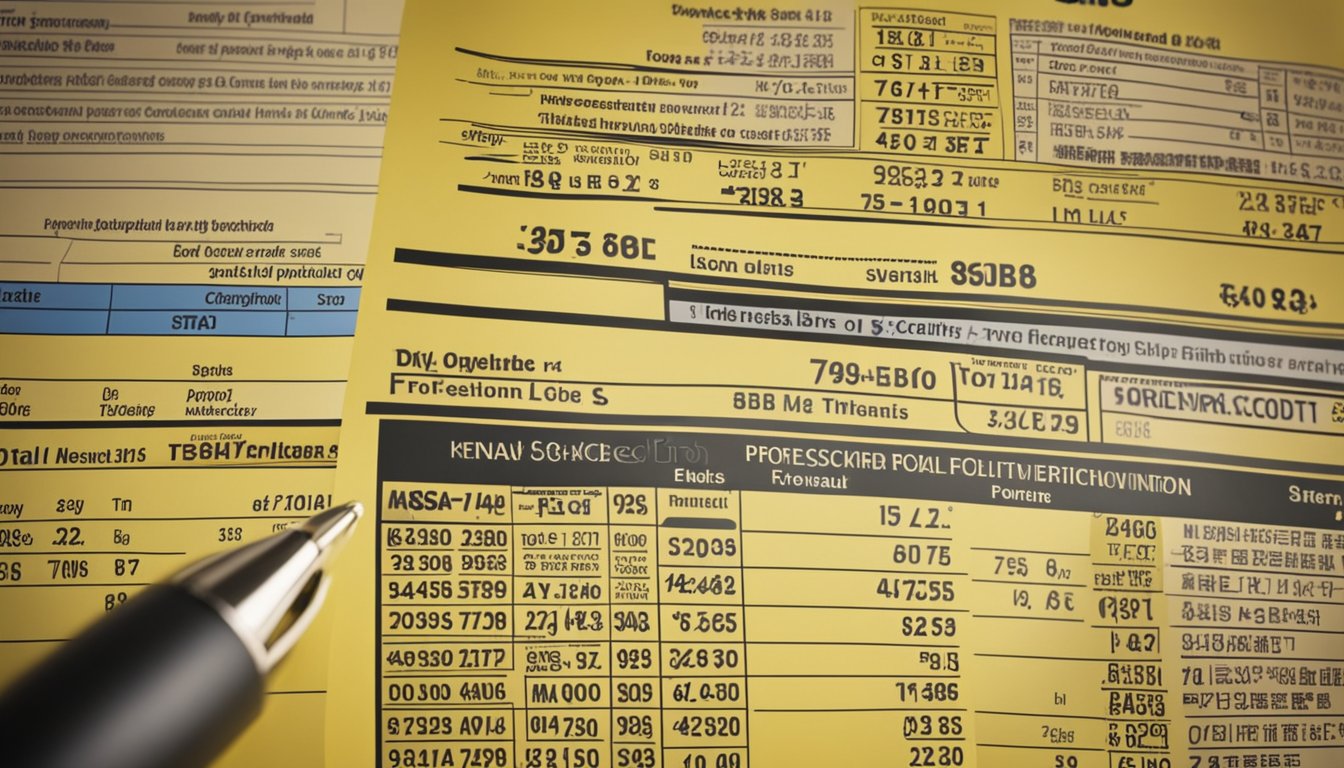
Your credit score can significantly impact your financial opportunities. It is one of the most important factors that lenders consider when you apply for a loan or a credit card. In this section, we will discuss how credit scores affect your financial opportunities in Singapore.
Credit Scores and Loan Approvals
Your credit score plays a crucial role in determining whether your loan application will be approved or rejected. When you apply for a loan, the lender will assess your creditworthiness by checking your credit score. If you have a good credit score, you are more likely to get your loan application approved. On the other hand, if you have a poor credit score, your loan application may get rejected.
Interest Rates and Credit Scores
Interest rates on loans and credit cards are also affected by your credit score. If you have a good credit score, you are more likely to get a lower interest rate. This means that you will have to pay less interest over the life of the loan or credit card. However, if you have a poor credit score, you may have to pay a higher interest rate. This can significantly increase the amount of interest you have to pay over the life of the loan or credit card.
In addition to affecting your loan and credit card applications, your credit score can also impact your ability to get a mortgage, car loan, education loan, or business loan. If you have a poor credit score, you may find it difficult to get approved for these types of loans.
Therefore, it is important to maintain a good credit score to increase your chances of getting approved for loans and credit cards with favourable interest rates. Make sure to pay your bills on time, keep your credit card balances low, and avoid defaulting on any loan accounts. By doing so, you can improve your credit score and increase your chances of getting approved for loans and credit cards in the future.
Overall, your credit score is an essential aspect of your financial life. It can impact your ability to get approved for loans and credit cards and can determine the interest rates you have to pay. Therefore, it is crucial to maintain a good credit score to increase your financial opportunities.
Improving Your Credit Score
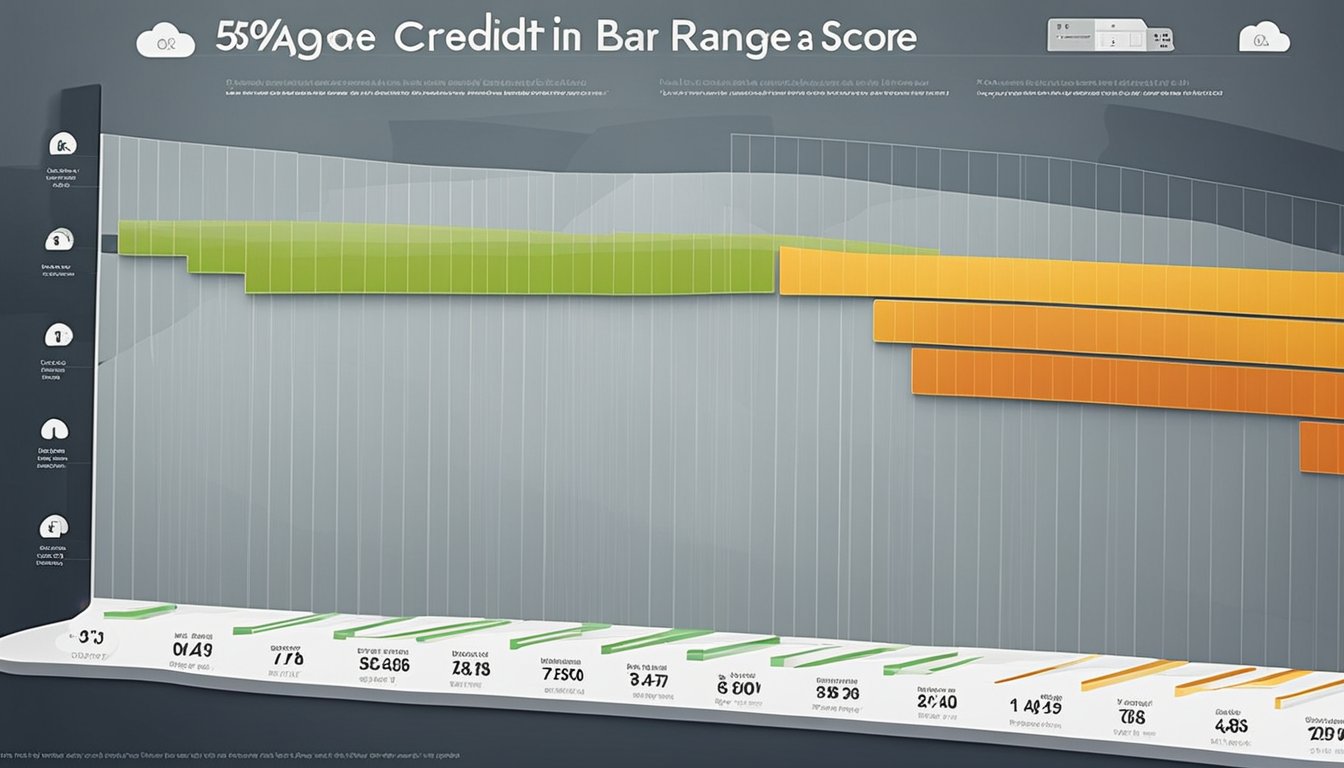
Improving your credit score is essential to maintain good financial health. Here are some tips to help you improve your credit score in Singapore.
Effective Credit Management
Managing your credit facilities effectively is crucial to maintaining a good credit score. Ensure that you pay your credit card bills, personal loans, and mortgages on time. Late payments can negatively impact your credit score, so it’s essential to make payments on or before the due date.
It’s also important to keep your credit exposure in check. Avoid applying for multiple lines of credit at the same time, as this can make it difficult for you to manage your payments. Instead, focus on managing your existing credit facilities effectively.
Dealing With Negative Credit History
If you have a negative credit history, it’s essential to take steps to address it. Start by reviewing your credit report to identify any mistakes or errors. If you find any mistakes, contact the credit bureau to have them corrected.
If you have default records, negotiated settlements, or bankruptcy records on your credit report, it can be challenging to improve your credit score. However, you can take steps to mitigate the impact of these negative records. For example, you can focus on making timely payments on your existing credit facilities.
Seeking Financial Advice
If you’re struggling to improve your credit score, seeking financial advice can be helpful. A financial advisor can help you identify opportunities to improve your credit score and provide guidance on managing your finances effectively.
In conclusion, improving your credit score is essential to maintain good financial health in Singapore. By managing your credit facilities effectively, dealing with negative credit history, and seeking financial advice, you can take steps to improve your credit score and open up new opportunities in life.
Credit Scores and Life Events
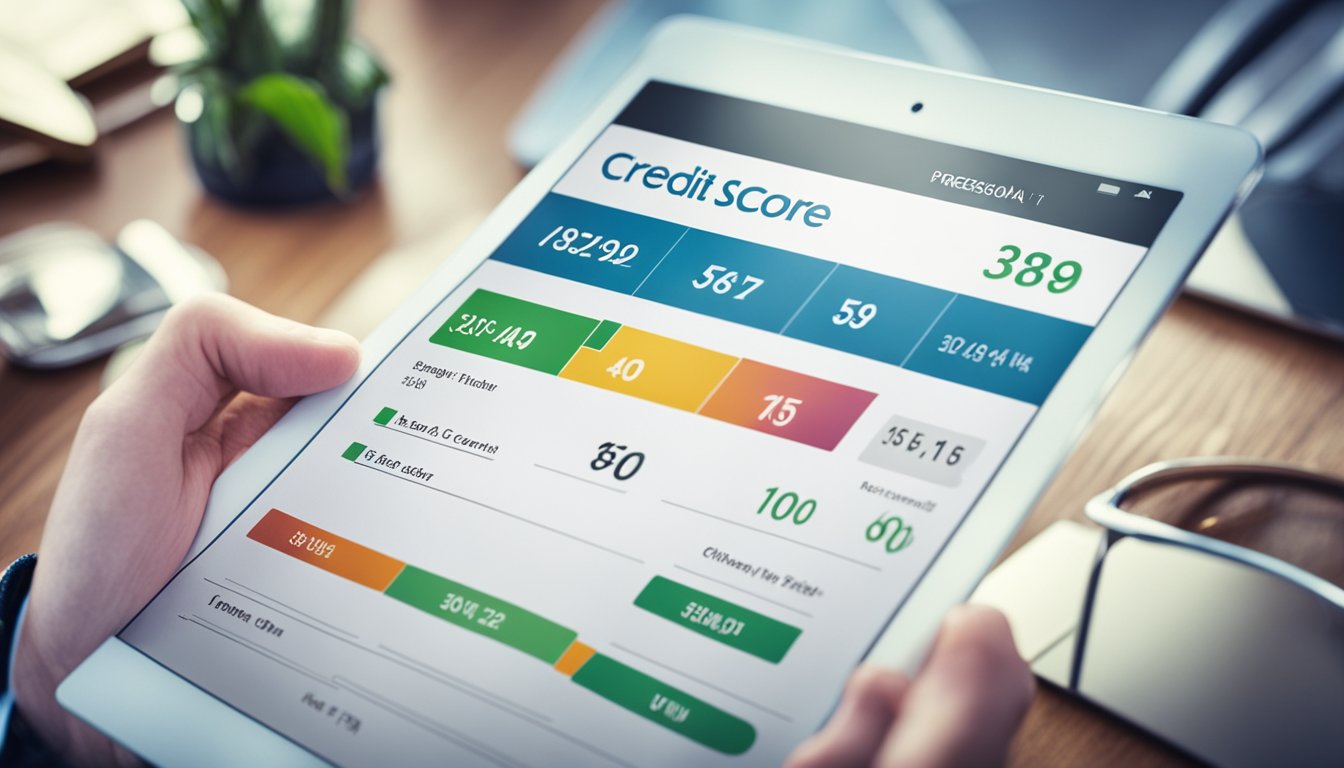
Your credit score can have a significant impact on major life events such as employment and major loans. Here are a few examples of how your credit score can affect these events.
Credit Scores and Employment
Some employers in Singapore may check your credit score before hiring you. They may do this to assess your financial responsibility and determine if you are a trustworthy employee. A good credit score can indicate to potential employers that you are financially responsible and can manage your finances well. On the other hand, a low credit score may indicate to employers that you have a higher risk of defaulting on debts and may not be as financially responsible.
Credit Scores and Major Loans
When you apply for a major loan such as a car loan or a home loan, lenders will check your credit score to determine your creditworthiness. A good credit score can increase your chances of getting approved for a loan and can also help you get a lower interest rate. On the other hand, a low credit score can make it difficult to get approved for a loan, and may result in a higher interest rate.
It is important to note that your credit score is not the only factor that lenders consider when approving a loan. They will also look at other factors such as your income, available credit, and credit applications. However, having a good credit score can increase your chances of getting approved for a loan and can also help you get a lower interest rate.
If you want to check your credit score, you can do so at a SingPost branch or online through the Credit Bureau of Singapore (CBS). Remember that your credit score can change over time, so it is important to monitor it regularly and take steps to improve it if necessary.
Legal and Institutional Framework

Regulations Governing Credit Scores
When it comes to credit scores, it is important to understand the legal and institutional framework that governs them. In Singapore, the Credit Bureau of Singapore (CBS) is the main credit reporting agency, and it is regulated by the Monetary Authority of Singapore (MAS). The CBS is responsible for collecting and maintaining credit information on individuals and businesses in Singapore, and it calculates credit scores based on several factors such as payment history, the amount of credit owed, the length of credit history, types of credit in use, and new credit applications.
The CBS is governed by the Credit Bureau Act, which sets out the rules and regulations that the CBS must follow when collecting and reporting credit information. The Act also sets out the rights and responsibilities of individuals and businesses when it comes to their credit information.
Monetary Authority of Singapore and Credit Ratings
The Monetary Authority of Singapore (MAS) is the central bank of Singapore, and it is responsible for regulating the financial industry in Singapore. MAS sets the standards for credit ratings in Singapore and works closely with the CBS to ensure that credit scores are accurate and reliable.
MAS also regulates banks and financial institutions in Singapore, and it sets the rules and guidelines that these institutions must follow when it comes to lending and credit. This includes regulations around bankruptcy, spending, and credit counselling.
Overall, the legal and institutional framework in Singapore is designed to ensure that credit scores are accurate and reliable, and that individuals and businesses are protected when it comes to their credit information. If you are looking to apply for a business loan or a personal loan in Singapore, it is important to understand the regulations and guidelines that govern credit scores, and to work with reputable lenders who follow these rules and guidelines.
Navigating Credit Score Resources

If you’re looking to improve your credit score in Singapore, it’s important to understand the resources available to you. Here are a few key resources to help you navigate your credit score:
Where to Obtain Your Credit Report
Your credit report is a detailed summary of your credit history, including your credit accounts, payment history, and outstanding debts. You can obtain your credit report from the Credit Bureau of Singapore (CBS). The CBS is the only credit bureau in Singapore authorized to issue credit reports.
To obtain your credit report, you can visit the CBS website and follow the instructions provided. You will need to provide some personal information, such as your NRIC or FIN number, to verify your identity.
Understanding Your Credit Score Statement
Once you have your credit report, you can review your credit score statement. Your credit score is a fluid number that changes over time based on your credit behaviour. The CBS calculates your credit score based on several factors, including your payment history, the amount of credit owed, the length of your credit history, the types of credit in use, and new credit applications.
A good credit score on the CBS typically falls between 1,844 and 2,000. However, it’s important to note that different lenders may have different criteria for what they consider a good credit score. It’s always a good idea to check with your lender to find out what credit score they require for the type of loan or credit you are seeking.
By understanding your credit report and credit score statement, you can take steps to improve your credit score over time. This can help you qualify for better interest rates and loan terms, which can ultimately save you money in the long run.
Conclusion
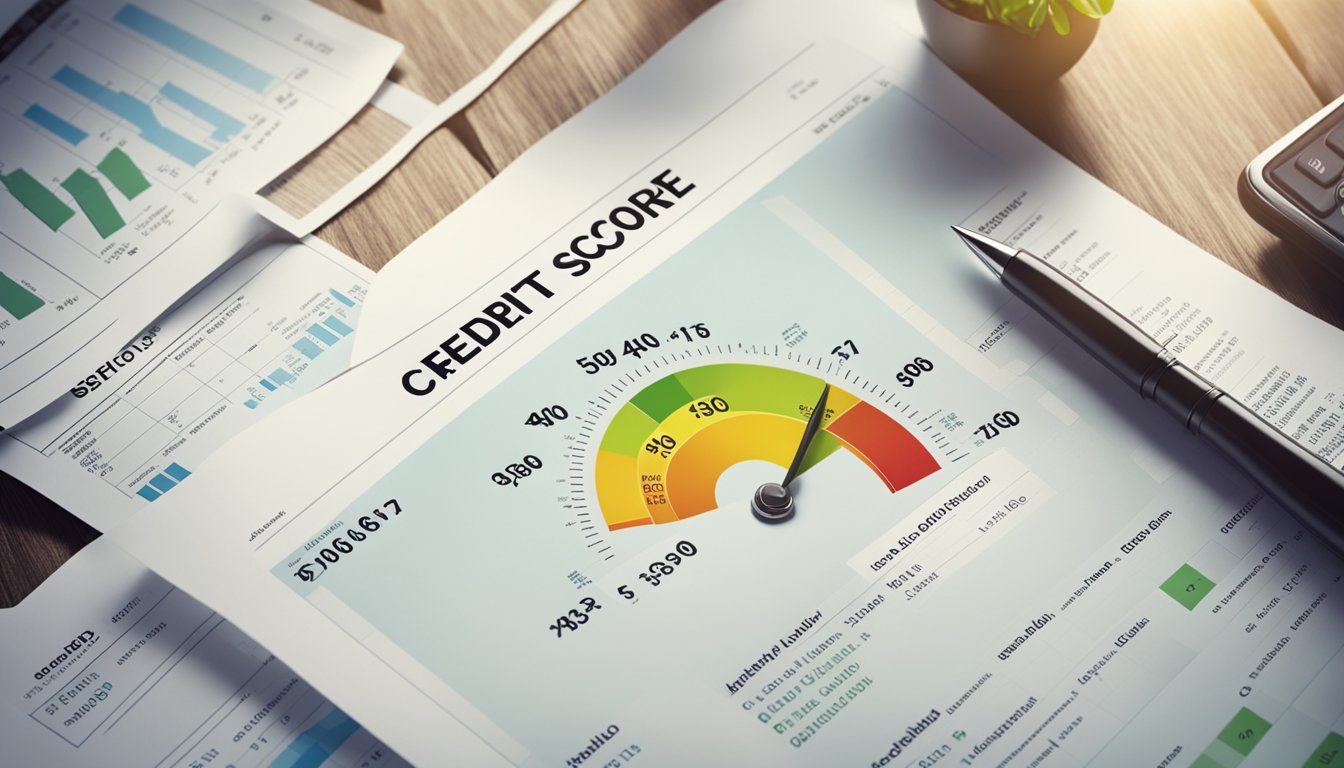
Congratulations! You now have a better understanding of what a good credit score is in Singapore and how it affects your financial health. Remember that your credit score is a reflection of your creditworthiness and lenders use it to determine whether or not to approve your loan application.
By maintaining a healthy credit score, you increase your chances of being approved for loans and other credit products, which can help you achieve your financial goals. Keep in mind that building a good credit score takes time and effort, but it’s worth it in the long run.
Remember to monitor your credit report regularly and take steps to improve your credit score if it’s not where you want it to be. This includes paying your bills on time, keeping your credit utilization low, and avoiding opening too many new credit accounts at once.
Finally, don’t forget to protect your assets by being vigilant against identity theft and other forms of fraud. By staying on top of your recent credit activities and taking steps to protect yourself, you can ensure that your credit score remains healthy and strong.
Good luck on your credit journey!
Frequently Asked Questions
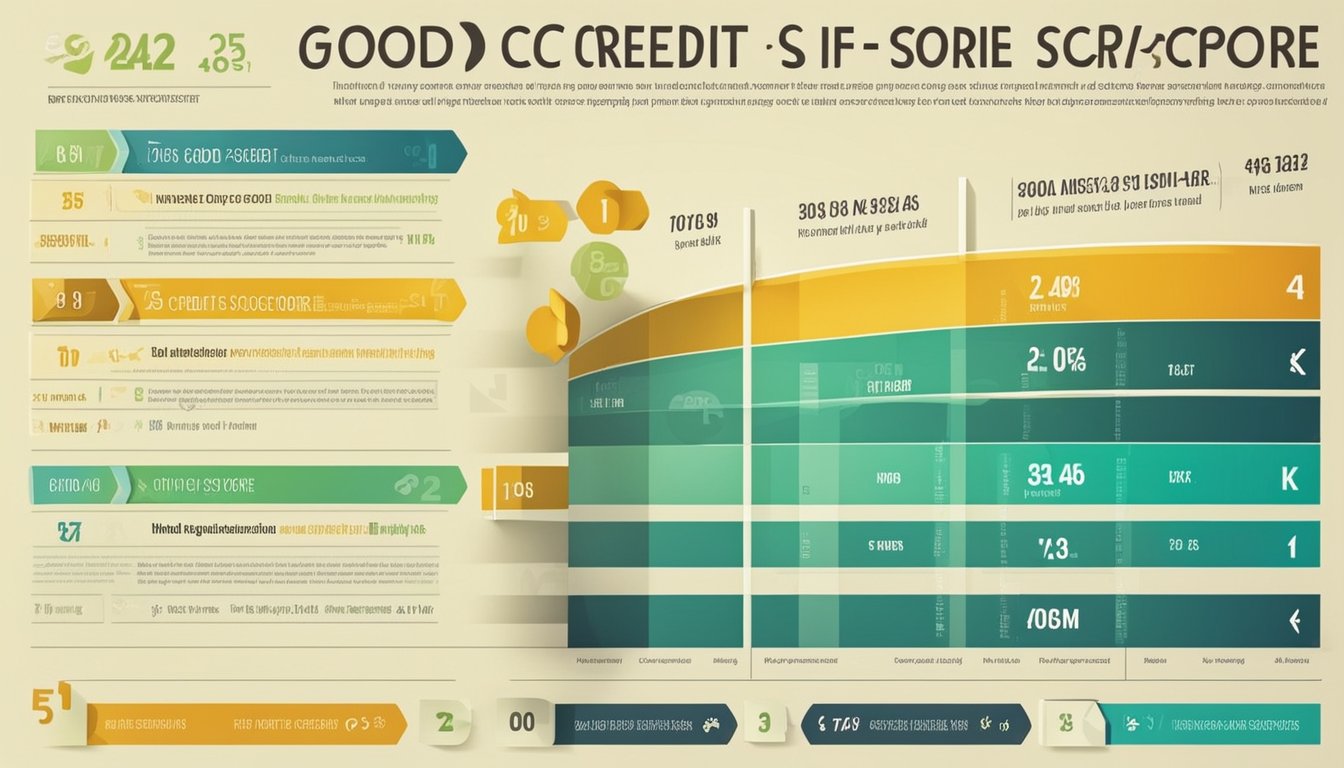
How can I check my credit score for free in Singapore?
You can obtain a free credit report from the Credit Bureau of Singapore (CBS) once a year. You can request the report online by visiting the CBS website and submitting your identification documents. Alternatively, you can also purchase your credit report from CBS for a fee.
What steps should I take to boost my credit score in Singapore?
To improve your credit score, ensure that you pay your bills on time and avoid defaulting on loans. You should also maintain a healthy credit utilization ratio and avoid applying for credit too frequently. It’s also essential to monitor your credit report regularly and rectify any errors promptly.
What does a BB credit rating signify in the Singapore context?
In Singapore, a BB credit rating signifies a moderately weak credit score. This rating suggests that you may face difficulties in obtaining loans and credit facilities. It’s essential to take steps to improve your credit score if you have a BB rating.
Why should I be concerned about my credit score in Singapore?
Your credit score is an essential factor that lenders consider when assessing your creditworthiness. A low credit score may result in higher interest rates, lower credit limits, or even rejection of your loan application. Therefore, it’s crucial to maintain a good credit score to access credit facilities at favourable rates.
What’s considered a robust credit score in Singapore?
A robust credit score in Singapore typically ranges between 1,844 to 2,000 on the Credit Bureau of Singapore (CBS) scale. This score suggests that you have a low risk of defaulting on debt obligations, making you an attractive candidate for lenders.
How can I rectify my record with the credit bureau in Singapore?
If you find any errors in your credit report, you can file a dispute with the Credit Bureau of Singapore (CBS). You can do this online by submitting your identification documents and providing evidence to support your dispute. CBS will investigate the issue and rectify any errors found.

